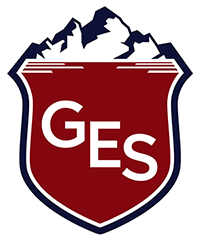Geneva English School
Mathematics
Mathematics
If you love solving problems or enjoy the satisfaction of getting a single right answer, Mathematics may well be the subject for you.
Mathematics can be useful in many other areas: from engineering to economics and medicine to computing. The social sciences, geography and its related fields will require mathematics in order to analyse statistics.
Many students say “Maths is a subject where I know that hard work will get me a better grade”. They take it because they are confident that their determination will be rewarded. Maths is hard, and universities and employers know that, so they respect people who have done well in it.
Course content
Mathematics at A Level is split into Pure and Applied. Most of the mathematics you have learned to date is Pure Mathematics and you will extend your understanding of this in many ways. Applied Mathematics relates to problems in the real world.
On the course you will learn how to solve cubic equations in addition to quadratics, study vectors in three dimensions rather than just two and explore the properties of “sin” and “cos” beyond triangles.
The most significant area developed is that of calculus, which allows you to measure the rate at which a variable changes. Newton first developed this idea in order to prove that the Earth travels around the sun in an elliptical orbit, but it now has a multitude of applications.
In Mechanics, you will learn how to simplify the complexity of the real world to make predictions about its behaviour. By applying Newton’s principles you will learn to answer questions such as:
- At what angle should you kick a football to attain the greatest range?
- Why does your stomach lurch when a lift comes to a stop?
Statistics helps us to make decisions when faced with uncertainty.
- Does a drug work?
- Is a jury biased?
- How certain can you be when making such a statement?
You will learn to use probability to answer such questions and will further develop the statistics you have learnt at GCSE, discovering new ways of analysing data to compare populations.
Inspirational starting points
Fermat’s Last Theorem by Simon Singh

Course preparation
Mathematics is a subject which builds upon previous learning, and so if you are not totally secure in the concepts of GCSE mathematics, you will find learning new ideas difficult. You can continue to improve your understanding of the ideas from GCSE by practising on drfrostmaths.com.
If you are not already at GES, you can sign up with us in order to see our year 11 scheme of work – it would be useful for you to practice questions from this.
Future pathways
Learning mathematics is challenging but the reward is significant.
Typical careers in Mathematics include:
- Accountancy
- Banking
- Statistician
- Actuary
- Economist
- Teacher
- Research Analyst
Mathematicians are key individuals in a wide variety of roles in today’s world because of their ability to spot patterns, think abstractly and to generalise concepts. People who have studied mathematics at a high level occupy top positions at companies from Google and Facebook, UBS and Deloitte to Aston Martin. As high-tech industries grow, these skills are only going to be more in demand.
- Entrance Criteria
- Exam board & Specification
- Assessment
